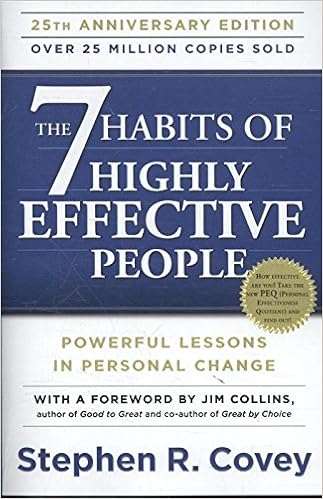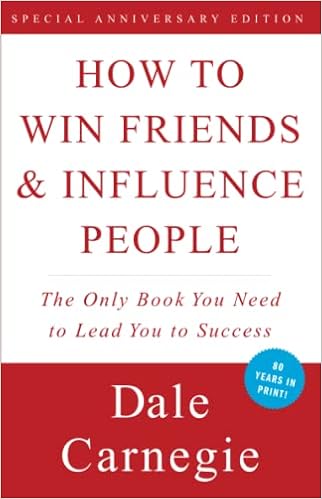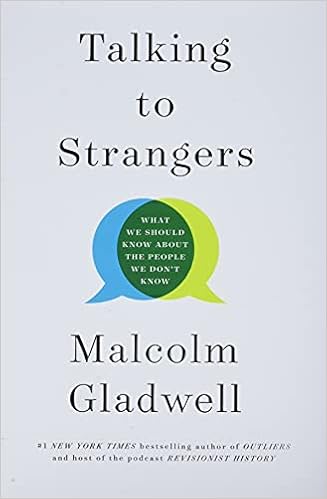If you want to be a great manager, you must have a solid knowledge of management and leadership. To achieve this goal, reading the best books for management and leadership is a good idea.
Management is a broad topic that requires a lot of management resources to learn.
10 best Books for Managers and Leaders
Here, we have picked out some of the best books for managers and leaders.
1. The 7 Habits of Highly Effective People by Stephen R. Covey
The 7 Habits of Highly Effective People by Stephen R. Covey
The 7 Habits of Highly Effective People by Stephen R. Covey is widely regarded as one of the best books on management and leadership, offering timeless principles for personal and professional success. Covey’s step-by-step framework guides readers through essential habits that empower leaders to foster character, build strong relationships, and instigate lasting positive change within their teams.
As Covey writes, “The key is not to prioritize what’s on your schedule, but to schedule your priorities,” emphasizing the importance of proactive time management and focused intention. His principle of thinking win-win encourages leaders to create mutually beneficial relationships, while his habit of sharpening the saw reminds us that continuous self-improvement is vital for sustaining long-term effectiveness.
Each habit is a powerful tool for cultivating integrity, vision, and a balanced mindset in leadership. As one reviewer notes, “Covey’s insights offer a roadmap for managers to navigate the complexities of leadership while staying true to their values and purpose.”
Whether you’re leading a team or shaping an organization, this book remains an essential read for anyone looking to become a more effective, inspiring, and results-driven leader.
2. Good to Great by Jim Collins
Good to Great by Jim C. Collins is one of the best-selling books on management and leadership, with over four million copies sold worldwide. As a follow-up to his international bestseller Built to Last, Good to Great focuses on how average or good companies can break free from mediocrity and transform into truly great organizations.
The book examines businesses that successfully underwent multi-year transitions resulting in long-term improvements in profitability. It also presents counter-examples of companies that, despite facing similar opportunities within the same industries, failed to adapt and thrive.
Reading this book sparked my curiosity, as I could immediately think of others who applied similar strategies and achieved remarkable success in their fields. This reinforces the idea that the principles outlined in Good to Great are not only insightful but also practical and widely applicable.
3. Start with Why By Simon Sinek

Start with Why by Simon Sinek is considered one of the most influential books on management and leadership, offering a powerful approach to inspiring teams and building successful organizations. Sinek’s central idea is simple yet profound: the most influential leaders “start with why.” As he explains, “People don’t buy what you do, they buy why you do it,” emphasizing the critical importance of communicating a clear purpose and belief before addressing the “how” and “what.”
This focus on purpose cultivates deeper trust, stronger loyalty, and more lasting success. As one reviewer states, “Sinek’s framework transforms the way leaders approach their teams, shifting from transactional leadership to a purpose-driven, inspiring influence.” For managers and leaders, Start with Why provides essential insights into creating a mission-driven culture and leading with authenticity.
As Sinek puts it, “Leadership is not about being in charge. It’s about taking care of those in your charge.” This book is a must-read for anyone seeking to lead with clarity, make a meaningful impact, and inspire teams to achieve their highest potential.
4. Dare to Lead by Brené Brown
In this book, the author draws on a wealth of research, including data from interviews conducted over the last two decades and conversations with 150 worldwide CEOs on the future of leadership.
 The evidence clearly shows that leaders must be willing to challenge the status quo and shift the cultures they are tasked with leading. If they aren’t, established cultural standards will harden, suffocating any future possibility of innovation or change.
The evidence clearly shows that leaders must be willing to challenge the status quo and shift the cultures they are tasked with leading. If they aren’t, established cultural standards will harden, suffocating any future possibility of innovation or change.
Brown says that if you actually dare to lead, your appointment to a leadership position should highlight your daring and bravery in redefining your role and the culture in which you work.
Dare to Lead is a data-driven case for a new leadership paradigm. According to Brené Brown, the business world is changing too quickly for leaders to merely establish a course and keep the ship afloat. True aspirational leaders should be willing to entirely remodel and rebuild the ship while steering it.
5 . The Making of a Manager by Julie Zhuo
. The Making of a Manager by Julie Zhuo
The Making of a Manager by Julie Zhuo is an invaluable guide for new and aspiring managers, offering practical insights and personal anecdotes from Zhuo’s own journey in the tech industry. As a former product design leader at Facebook, Zhuo provides a candid look at the challenges and triumphs of transitioning from an individual contributor to a leadership role.
One of the key lessons she imparts is, “The best managers aren’t those who have all the answers, but those who ask the right questions,” highlighting the importance of curiosity and open communication in leadership. Zhuo’s advice focuses on developing the skills necessary to guide teams effectively, foster collaboration, and navigate the complexities of decision-making, while always prioritizing the growth and well-being of the individuals under your leadership.
With practical tips on everything from giving feedback to navigating difficult conversations, The Making of a Manager empowers readers to lead with confidence and authenticity. As one reader puts it, “Julie’s advice is refreshingly human and highly actionable, making it a must-read for anyone stepping into a leadership role.”
For anyone looking to build a solid foundation in management or refine their leadership skills, this book provides essential guidance on becoming a thoughtful, empathetic, and impactful manager.
6. Never Split the Difference by Chris Voss with Tahl Raz
Never Split the Difference by Chris Voss, with Tahl Raz, is widely regarded as one of the best books on management and leadership, offering invaluable negotiation tactics from the perspective of a former FBI hostage negotiator. Voss shares powerful, time-tested strategies for negotiating in high-pressure situations, with a focus on emotional intelligence, active listening, and tactical empathy.
As Voss himself states, “He who has learned to disagree without being disagreeable has learned to win.” This emphasis on emotional intelligence and understanding human behavior is essential for any leader, providing the tools necessary to influence, persuade, and resolve conflicts effectively—whether in the boardroom or in everyday business interactions.
Through practical, real-world techniques, Never Split the Difference equips managers and leaders with the skills to navigate complex negotiations and achieve better outcomes in their professional lives. As one reader remarks, “Voss’s approach is not just about striking deals; it’s about connecting with people on a deeper level and creating win-win situations.”
This book is a must-read for leaders looking to strengthen their negotiation skills, improve team dynamics, and ultimately enhance their decision-making and problem-solving capabilities.
7. How to Win Friends & Influence People by Dale Carnegie
How to Win Friends & Influence People by Dale Carnegie is one of the best books for managers and leaders, offering timeless lessons on communication, relationship-building, and influence. Carnegie’s principles teach leaders how to connect genuinely with others, inspire cooperation, and handle interpersonal challenges with tact and empathy. As Carnegie famously says, “You can make more friends in two months by becoming genuinely interested in other people than you can in two years by trying to get other people interested in you.”
For managers, mastering these skills is critical for creating strong teams, resolving conflicts, and motivating employees. Carnegie’s advice on showing genuine appreciation, listening actively, and making others feel valued is as relevant today as when the book was first published. One reader sums it up perfectly: “This book not only transforms the way you communicate but also enhances the way you connect and lead with others.”
With its practical advice and real-world examples, How to Win Friends & Influence People remains a must-read for anyone looking to lead with greater impact, emotional intelligence, and authenticity. Whether you’re looking to strengthen relationships with colleagues or motivate your team to reach new heights, Carnegie’s timeless wisdom will guide you every step of the way.
8. The Leadership Challenge by James M. Kouzes and Barry Z. Posner 
The Leadership Challenge by James M. Kouzes and Barry Z. Posner is widely regarded as one of the best books for management and leadership, offering a comprehensive framework for developing leadership skills and inspiring others. Grounded in decades of research, the book outlines five key practices that exemplary leaders use to engage, motivate, and empower their teams.
As the authors note, “Leadership is not about being in charge. It’s about taking care of those in your charge.” These five practices—Model the Way, Inspire a Shared Vision, Challenge the Process, Enable Others to Act, and Encourage the Heart—provide actionable strategies for building trust, fostering collaboration, and achieving extraordinary results.
One of the book’s most powerful insights is the emphasis on leading by example. “You can’t lead others until you lead yourself,” Kouzes and Posner argue, underlining the importance of personal integrity and setting a positive example. The Leadership Challenge not only provides leaders with practical tools for navigating the complexities of their role, but it also inspires them to create a lasting, positive impact within their organization.
As one reader puts it, “This book is a blueprint for creating a leadership culture that empowers teams and drives success.” The Leadership Challenge is an essential read for any leader committed to continuous improvement and making a meaningful, long-term difference in their organization.
9. Thinking, Fast and Slow by Daniel Kahnema
Thinking, Fast and Slow by Daniel Kahneman stands out as one of the best books for managers and leaders, providing a profound understanding of how decisions are made. Kahneman explores the two systems of thinking: the fast, instinctive system (System 1) and the slow, rational system (System 2). As Kahneman explains, “The idea that we think both fast and slow is a fundamental insight into how our minds work.”
For anyone in a leadership role, mastering these concepts is essential for improving decision-making, avoiding common cognitive biases, and leading teams with greater clarity and effectiveness. Kahneman’s exploration of biases such as anchoring and availability provides leaders with the tools to recognize and overcome the mental shortcuts that often lead to suboptimal decisions.
As one reviewer puts it, “This book offers deep insights into human behavior, helping leaders think more critically, make better choices, and strategize more thoughtfully.” Thinking, Fast and Slow equips managers and leaders with the ability to approach challenges with a more deliberate and rational mindset, driving better results and fostering more effective decision-making processes within their organizations.
This book is essential reading for anyone looking to enhance their cognitive toolkit and lead with greater insight and strategic thinking.
10. Talking to Strangers by Malcolm Gladwell
Talking to Strangers by Malcolm Gladwell is as one of the best books on management and leadership for its unique approach to understanding human behavior. Gladwell delves into how and why we often misinterpret strangers, revealing the complex ways in which communication can go awry. As Gladwell writes, “The challenge of talking to strangers is that we can’t really know them. But we must try.”
For managers and leaders, these insights are crucial in navigating complex interpersonal dynamics, especially in high-stakes situations. The book highlights the importance of emotional intelligence, active listening, and critical thinking—skills that are essential for leading effectively. As one reader notes, “Gladwell’s exploration of how we misread people offers a compelling framework for understanding and improving communication in leadership.”
By applying the lessons from Talking to Strangers, leaders can enhance their ability to build trust, avoid costly misunderstandings, and create stronger, more cohesive teams. The book encourages leaders to be more mindful of the assumptions they make about others and to approach each interaction with a deeper sense of empathy and understanding.
For anyone looking to strengthen their communication skills and improve their leadership effectiveness, Talking to Strangers offers invaluable lessons that help transform the way we connect with others, fostering better relationships and achieving greater success.
Read Also:
10 Ways to Boost Employee Morale in the Workplace
10 Communication Skills Every Manager Needs
Conclusion:
In conclusion, while true mastery of management and leadership comes through real-world experience, books serve as valuable foundations, offering essential principles, insights, and strategies. They equip entrepreneurs and CEOs with the knowledge needed to navigate challenges, make informed decisions, and inspire teams. By combining lessons from books with practical application, individuals can accelerate their growth and lead their business ventures more effectively and confidently.
Photo by John Ray Eboraell





